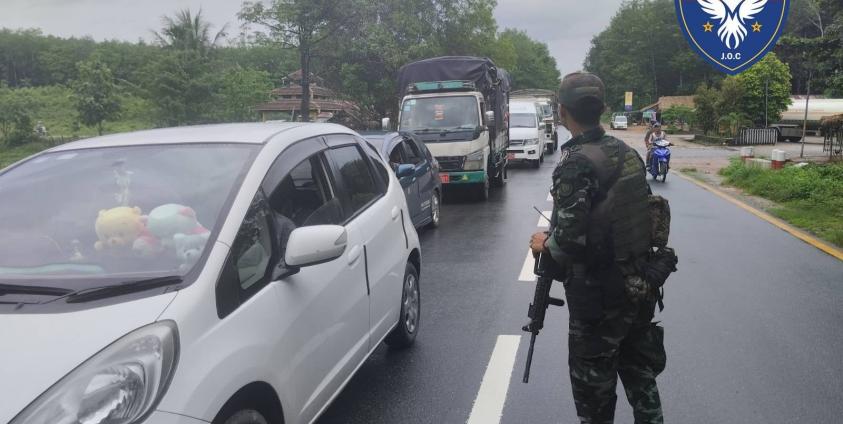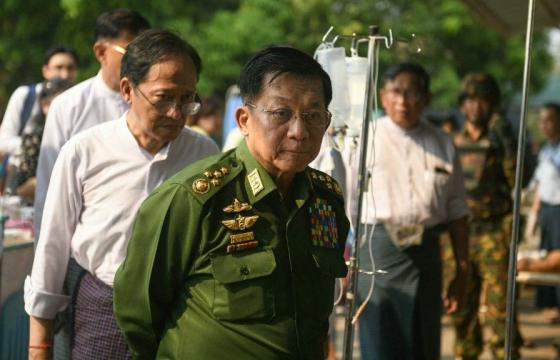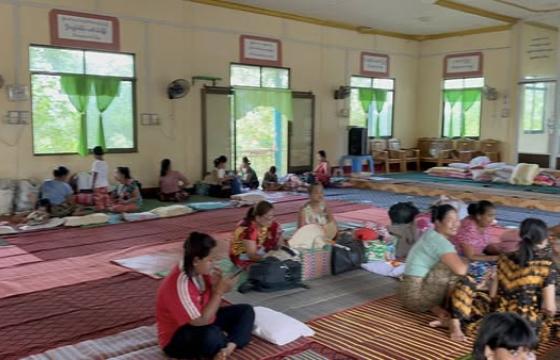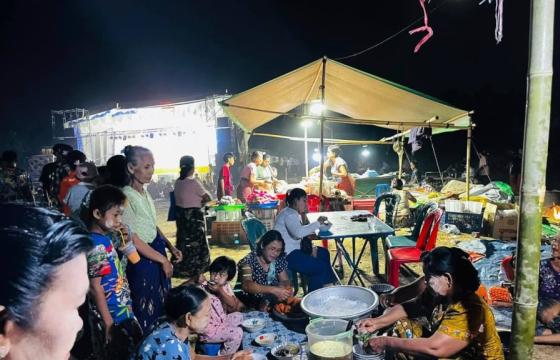Officials from the Karen National Union (KNU)-led revolutionary forces informed Than Lwin Times that in Karen State, which comprises 7 townships, they have managed to gain control over both rural areas and the outskirts of towns.
Karen State, being the central location for the Military Council Southeastern Command's defense, security, and operations, emerged as a significant stronghold for the revolutionary forces since ing the coup. Karen State is also home to the headquarters of the Karen National Union (KNU).
According to the revoJuntalutionary forces, during the period of more than two years since the coup d'état, the Military Council's control over the territory in Karen State's 7 townships, namely Hpa-An, Hlaingbwe, Thandaung Gyi, Hpapun, Kawkareik, Myawaddy, and Kyainseikgyi, has significantly weakened, with the exception of Hpa-An township.
Commander Aung San Shar, heading the Special Operations Forces (S.O.F.), asserted, "In Karen State, the revolutionary forces have significant control over the main road, villages, roads connecting the villages, and all routes connecting towns and villages. While the Military Council maintains control in certain small areas within the towns, the majority of the region is under the command of the revolutionary forces led by the KNLA and the People's Defense Forces."
As per his statement, the Military Council's control is limited to only certain parts of the towns, while the revolutionary forces have been successful in gaining control over the villages, rural areas, main roads, and roads connecting towns and villages throughout Karen State.
According to the statements of the Karen National Union (KNU), in the duration of more than two years since the coup, there have been over 9,000 clashes between the revolutionary forces and the Military Council troops in KNU-administered areas. Additionally, thousands of soldiers from the Military Council have lost their lives during these confrontations.
On February 2, the Military Council declared martial law in Kyainseikgyi and Kawkareik townships of Karen State, where the Military Council only controlled a limited number of areas within the towns.
KNU spokesperson Padoh Saw Kler Say stated to Than Lwin Times that, with the weakening of the Military Council's territorial control during the coup, the KNU's administrative activities were expanded.
"We can observe that in 6 out of the 7 townships, except for Hpa-An township, the control of the Military Council has significantly weakened. Conversely, the administration of the Karen National Union (KNU) has gained greater acceptance and influence in the surrounding regions of the town. This progress indicates that we have the potential to expand further," he said.
Based on the ground conditions, the Military Council troops are facing challenges in preventing their stationed battalions in the towns of Karen State from being targeted, and their camps from being overrun by the revolutionary forces.
"In the remaining six townships, their administrative system has virtually collapsed. Similar situations can be observed in the neighboring villages of the town. The revolutionary forces have garnered increased support, leading to a favorable position for exerting territorial control," added Padoh Saw Kler Say.
According to the revolutionary forces, there has been a notable change in the pattern of fighting in Karen State during the more than two years since the coup. The Military Council troops have shifted from being on the offensive to adopting a defensive stance in their operations.
The Military Council troops have been suffering defeats in all recent skirmishes against the joint forces of the revolutionary forces, led by the KNLA. In response to these setbacks, they have started using airstrikes.
The junta leader, Senior General Min Aung Hlaing, whose term of state of emergency is nearing expiration, has recently acknowledged the ongoing need to prioritize security and the rule of law across the country







